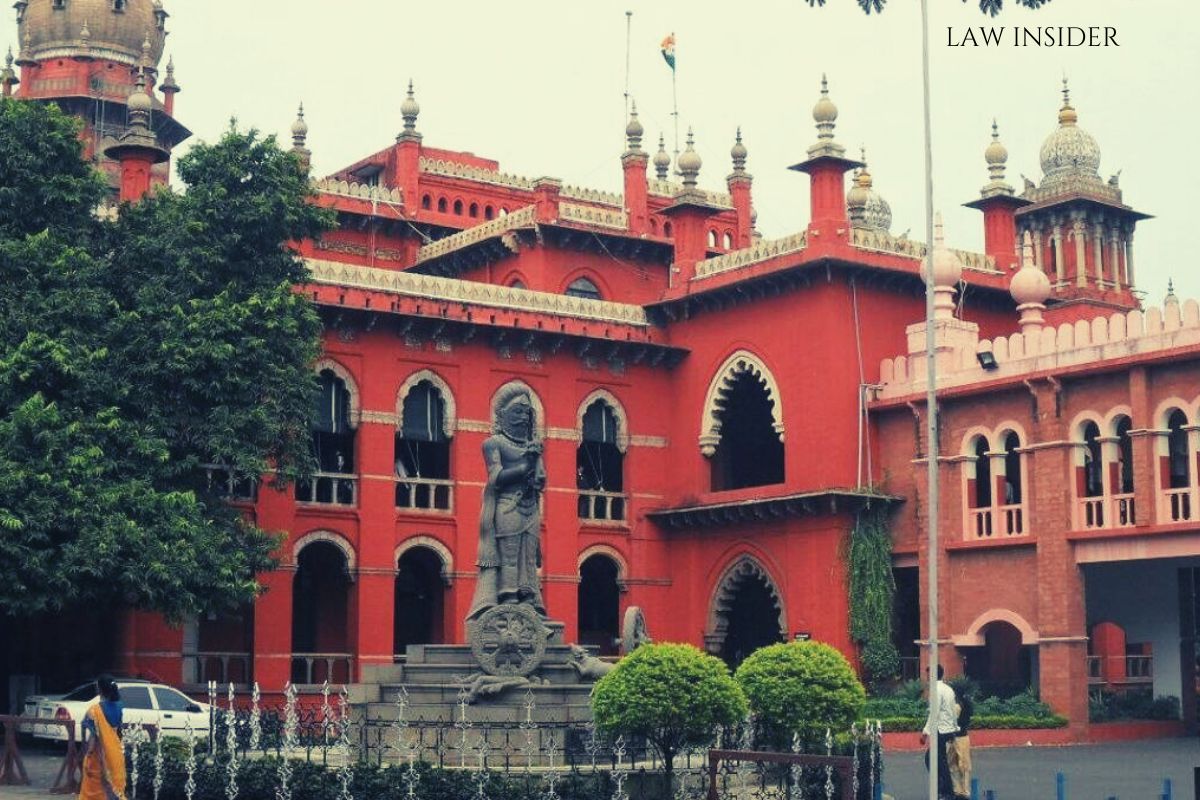LI Network
Published on: 11 August 2023 at 11:10 IST
The Madras High Court expressed strong disapproval of the manner in which the trial against Tamil Nadu’s Minister of Higher Education, K Ponmudi, was transferred from one district court to another.
This transfer was approved by three High Court judges, including the then Chief Justice (CJ) of the High Court.
Justice N Anand Venkatesh, a single-judge, took the initiative to initiate a “suo motu revision” of the order issued by Judge N Vasanthaleela, the principal district judge at Vellore (now retired), who acquitted Ponmudi in a case involving alleged disproportionate wealth in June of the present year.
Justice Venkatesh highlighted that there were serious issues with the transfer order issued on the administrative side of the Madras High Court, which led to the trial being shifted to Vasanthaleela.
Describing it as one of the “most damaging cases” he had encountered, Justice Venkatesh directed the Madras High Court registry to serve notices to Ponmudi and his co-accused, his wife P Visalatchi. He also instructed the registry to refer the matter to the current Chief Justice, SV Gangapurwala, for “further information.”
Justice Venkatesh criticized the June 28 order issued by N Vasanthaleela, the then principal district judge in Vellore, who retired just two days after delivering the judgment. He deemed it an instance of “absolute miscarriage of justice.”
Justice Venkatesh, who is responsible for cases involving Members of Parliament (MPs) and Members of Legislative Assemblies (MLAs), mentioned in his order that he was recently made aware of the June 28 order based on a transfer order issued on the administrative side of the Madras High Court.
He pointed out that after reviewing the details, he found significant irregularities in the procedure followed in the matter, including an administrative note issued by two of the Madras High Court’s administrative judges at the time and the subsequent approval given by the then Chief Justice.
The transfer note that moved the case from the district court in Villupuram to the principal district judge in Vellore, despite being approved by the Chief Justice, was “illegal and non-est in law.”
The Chief Justice during this period was Justice Munishwar Nath Bhandari, and the two administrative committee judges were Justices T Raja and V Bhavani Subborayan. While CJ Bhandari and Justice Raja have since retired, Justice Subborayan remains a sitting judge of the Madras High Court.
Justice Venkatesh’s order does not name any of the judges involved, referring only to their positions.
The case against Ponmudi and his wife was initiated by the Directorate of Vigilance and Anti-Corruption (DVAC) in 2002 when the AIADMK came to power in the state.
The DVAC alleged that the accused individuals had accumulated illegal assets while Ponmudi served as a minister in the DMK government between 1996 and 2001.
The trial was initially being conducted in the Villupuram court and was unexpectedly transferred to the principal district judge in Vellore on June 7 of the previous year. Subsequently, the Vellore judge acquitted the Minister and his wife, stating that the prosecution had failed to provide sufficient and legally acceptable evidence against them.
Interestingly, the administrative note for transferring the case was issued in response to an unrelated request sent months earlier by the principal district judge of Villupuram, seeking permission to hold hearings in the case on non-working days.
Justice Venkatesh noted that following the transfer, a case that had been pending for years was decided in favor of the accused with remarkable speed.
Justice Venkatesh concluded that the transfer note was a “calculated attempt to manipulate and subvert the criminal justice system.” He also emphasized that it is not within the authority of the High Court to arbitrarily transfer cases without valid reasons.
Furthermore, Justice Venkatesh highlighted that neither the Constitution, the Letters Patent, nor any provision of law grants the administrative judges the power to transfer a pending criminal case from one district to another through a mere note.
He criticized the then Chief Justice’s approval of the transfer note, stating that even the Chief Justice did not have the authority to randomly approve the transfer of a criminal case from one court to another.
“The Chief Justice is the Master of the Roster vis-à-vis the Benches in the High Court. It does not follow that the Chief Justice enjoys administrative power to transfer a criminal case pending in a District Court to another District.
No such power exists or has been shown to exist either by law or by convention. Consequently, the approval of the Hon’ble Chief Justice on 08.07.2022 does not clothe the note order of the Administrative judges with any legality,” Justice Venkatesh remarked.
Justice Venkatesh referred to Supreme Court judgments to assert that the High Court has the authority to exercise its powers under Article 227 of the Constitution and relevant sections of the Criminal Procedure Code to rectify legal discrepancies.

